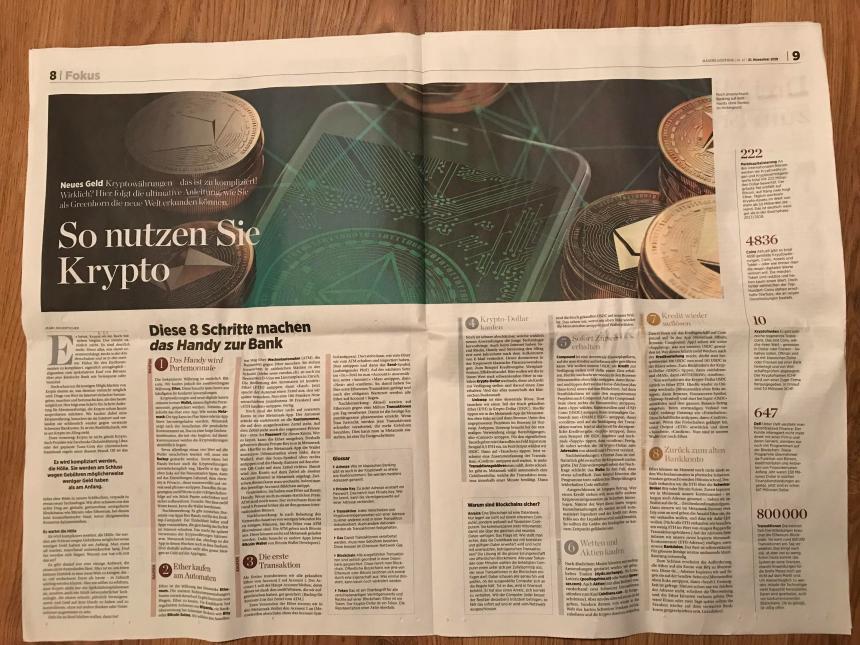Reason to trust

How Our News is Made
Strict editorial policy that focuses on accuracy, relevance, and impartiality
Ad discliamer
Morbi pretium leo et nisl aliquam mollis. Quisque arcu lorem, ultricies quis pellentesque nec, ullamcorper eu odio.
Swiss media outlet Handelszeitung has published a full-page spread singing the praises of cryptocurrencies and underlying Distributed Ledger Technology (DLT). Accompanied by a step-by-step guide to help newbies learn how to buy and properly store the coins, the article is a welcome sign that enthusiasm is strong and adoption is still on the rise despite recent price woes in the industry.
Also out of Switzerland, the country’s Federal Council has proposed updates to its banking infrastructure laws to accommodate DLT and help keep the country a top industry destination, moves that have been broadly welcomed by the country’s growing blockchain industry.
Krypto für Dummies
The article provides an optimistic view of the future of digital currencies in Switzerland, and outlines how they make it easier to “trade, exchange, and send” assets across the globe. The author takes readers on a journey from finding and buying cryptocurrency, storing it, and then selling the coins back for Swiss banknotes — all on a smartphone — in an attempt to highlight the ease of using the coins in daily life.
An important distinction is also highlighted: the difference between true cryptocurrencies like Bitcoin — which are decentralized and operate through a “global, boundless, and unregulated” blockchain — and centralized, enterprise or state-controlled ones like Facebook’s Libra or China’s digital Yuan.
Finally, readers are reminded that as this is still a growing industry, trading and transacting in the coins is only going to get easier and more user-friendly.
True coins, like Bitcoin, are “not a speculative phenomenon, but a piece of amazing technology that allows one to suddenly have and control assets and money virtually without relying on other banks or companies.”

Swiss to Update DLT framework
Swiss blockchain regulations are set for an overhaul, as federal government officials submitted revisions to current banking infrastructure laws at a meeting November 27. The proposal sets to amend the current outdated laws related to blockchain and distributed ledger technology (DLT), and is aimed at decreasing legal uncertainty, removing barriers for applications based on DLT, and reducing the risk of potential abuse.
One example given if the legislation goes through parliament relates to shares, which would become digital-only (not paper), allowing the instant settlement of trades, as opposed to a few days.
“The development of DLT is predicted to have significant potential for innovation and efficiency gains in the financial sector as well as other sectors of the economy,” read the government statement.
Blockchain industry bodies welcomed the proposed legislation, which sets out to amend existing laws rather than create a new legal framework just for DLT; the consultation process has ironed out any major problems presented in the initial proposals, said Jacques Iffland, chairman of the Capital Markets and Technology Association.
Featured Image from Shutterstock



























